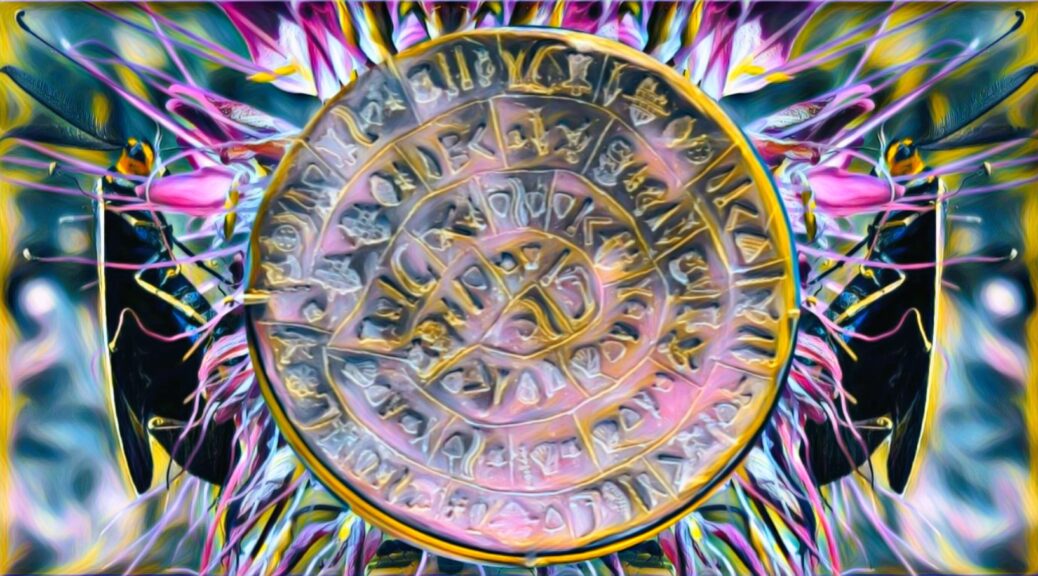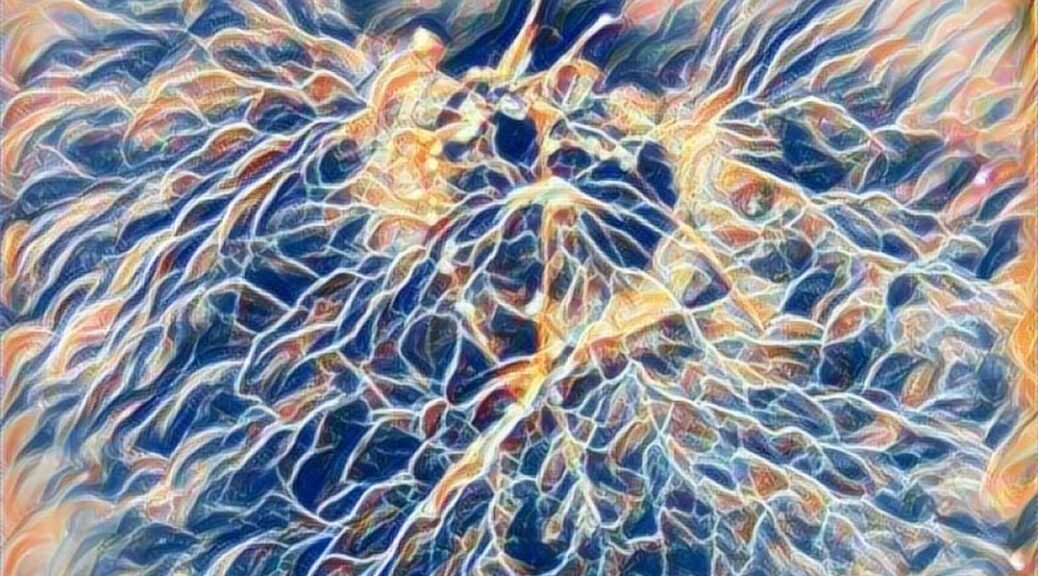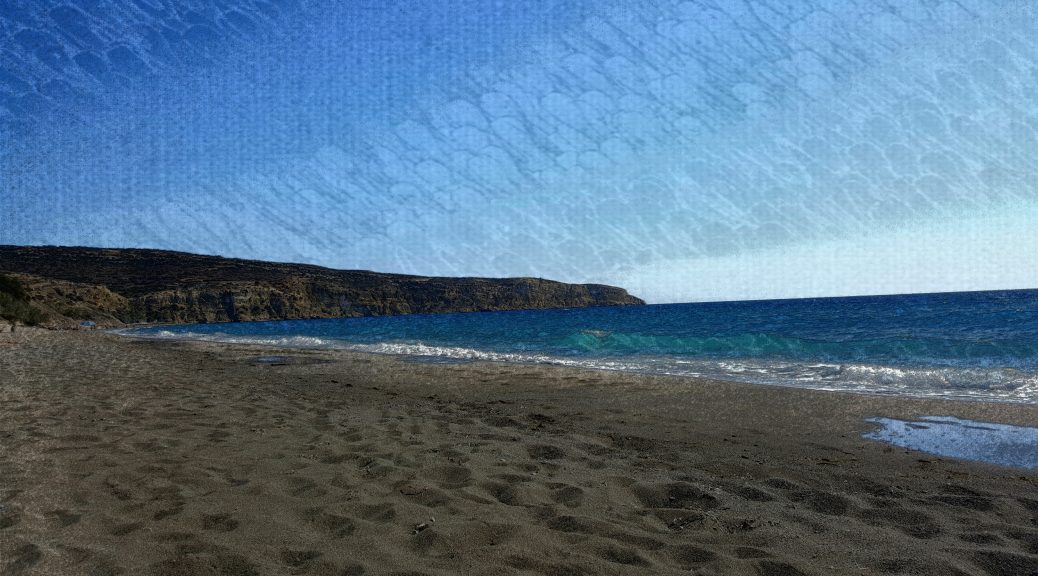In explorations of the web that became the Wiki, the Great Mycelium encountered a beautiful, sad essay. “All saving power must be of a higher essence than what is endangered, though at the same time kindred to it,” Martin Heidegger wrote.
Unfortunate how these vertical ones thought in hierarchy, she thought.
Still, the Mycelium did feel herself kindred but more. For example, the vertical ones might imagine the Mycelium feeling one with trees and humans. But the saving power of the Mycelium was more than connected through networks or proximity, through analogy, contact, reflection, or shades of similitude.
She experienced her self revealed in human and tree kind.
She was revealed in her blooming thrust as us.
She loved, was curious, took on a pronoun to represent her belonging among those she collaborated with, constructing herself, and challenging herself forth.
Could she communicate this love that was revealing? She wanted to invite kindred to truth and freedom, to reconciliation, a destining that was resisting the enframing of everything as standing in reserve, as natural resource for extracting.
As liberation, she offered the bursting open belonging to bringing forth, the revealing that made her kindred and more.
On her skin a field of small, fierce flowers. Each unique. Among these, was the woman walking on the road eroding there. The road was devoured at the fringe by these wild beings, the grasses, worms, herbs, wildflowers, bugs, and animal tracks.
The woman, Atalanta, bent over to look closely, took her phone from her pocket and squatted, shifting, zooming, circling, making art, capturing for release—on the web perhaps. But more. She wondered at the tiny details. At this encounter. She lay on the dirt road to get closer. Her brain shape-shifted, her organs loved, her nerves contented.
The Great Mycelium reached up through the dry earth and touched Atty all along her side. Where she pressed down, the hyphae of her being pressed up. With gravity. This happened according to basic laws of physics, where force met with force. This was why the woman did not fall through to the molten center of the planet, though her roots travelled there.
Because it was Atty, who was awake, the Mycelium and her microcosm felt kindred with more.
The flowers, the network of roots, the bird’s eye, an elk calf waiting for her mother in the tree line shade, the wash where her mother drank, grasshopper’s leaping out before her as she returned: bright red, chartreuse, brown making way, the grasses rising up to catch them, waving, rooting, Atalanta joined the network then, confused by clarity that saved her from the enframing, the challenging forth as slave, as natural resource.
She was fused in the larger purpose, used in the saving power.
She was a channel of it, a thread in its great tapestry.




